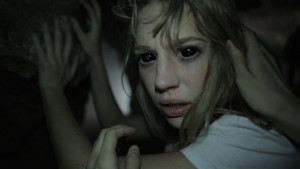
“My only wound is Frantz.”
Ratio shifts are so last year; leave it to François Ozon to instead approach time and emotion through the use of color in Frantz. Bringing something unique to a film that could have otherwise been a stuffy post-WWI drama about a German woman mourning the loss of her husband who meets a Frenchman leaving flowers at his grave, Ozon uses music as a trigger for pain and color as a trigger for joy.
Repression abounds in Frantz and the restrained performances by its leading and supporting cast are beautifully representative of a period in which everyone is trying to maintain a strong front in the face of extreme loss. This is, after all, a war-torn realm we’re diving into. The few moments of emotion are meant to feel overwhelming, with the film’s gorgeous black-and-white cinematography slowly being filled in by color as characters reminisce on their dearly departed, and snapped back to bleakness once nostalgia dissipates.
This becomes one of the methods with which Ozon queers the narrative that Ernst Lubitsch once presented with his pre-code feature Broken Lullaby. Criticisms of the film being lacking in queerness and adhering to the structure of an average period drama seem to miss the point. More in tune with Christian Petzold’s Phoenix in the way it presents individuals falling into the roles of others, Ozon forces this German woman and French man to fall into each other and into their dead friend/lover. There is no erotic content, as repression is the name of the game, but the queerness here is grounded in obsession and roleplaying (as much of the filmmaker’s career engages with).
With Frantz, we witness two individuals trapped in their pain, both willing to do anything in order to escape it, but primarily falling into alternate personas. Where our Frenchman Adrien (Pierre Niney) falls in love with Frantz (Anton von Lucke) by being Frantz, by being his friend, by playing a role that he has no right to play and has no real awareness how to play, Anna (Paula Beer) instead manages to fall in love with Adrien by doing precisely the same in being Adrien. We indulge ourselves by diving deep into the interests of those we want to know better and, in many ways, become one with that individual. Ozon, then, chooses to ensure that Anna, Adrien, and Frantz, all become a part of each other.
The parallels between the battlefield of war and the internal battlefield that one must deal with after the war are where Frantz thrives most and the performances–particularly Beer in moments of silence and bursts of emotion–mirror this. Death, ultimately, unites us all; be it the death of another, the depiction of death elsewhere, the longing to die ourselves, or the push to go on living when once that seemed impossible.
—
Directed by François Ozon; written by François Ozon & Philippe Piazzo; based on the film Broken Lullaby by Ernst Lubitsch & Maurice Rostand’s play L’homme que j’ai tué; 113 minutes.
Frantz is currently undergoing a limited theatrical release. It played at the Miami Film Festival on Saturday, March 4th, and will be opening in Miami on March 31st at Coral Gables Art Cinema and O Cinema Miami Beach. It will also expand to the Cosford Cinema on April 14th.



 Derek
Derek
 Isabelle
Isabelle